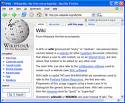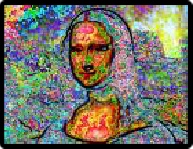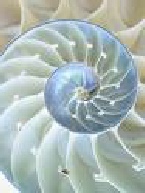
















NEXT
BACK
NEXT
BACK








Site Search

- Shannon, Claude and Weaver, W. The Mathematical Theory of Communication. Univ. of Illinois Press, 1963. [Shannon and Weaver broadly defined communication as “all of the procedures by which one mind may affect another”. ]
- Shermer, Michael. How We Believe: The Search for God in an Age of Science. W.H. Freeman & Co., 2000. [“In fact, the original Greek meaning of mythos as “word”, in the sense of a final pronouncement, to be contrasted with logos, also “word”, but one whose veracity may be disputed”]
- Smith, Wolfgang. The Quantum Enigma : Finding the Hidden Key. Sophia Perrinis, 1995. [“. . . The conception of physical systems . . . at which we have arrived is in a way classical, and can in fact be understood from a traditional metaphysical point of view.”]
- Smolin, Lee. The Trouble with Physics : The Rise of String Theory, the Fall of a Science, and What Comes Next. Houghton Mifflin, 2006. [comment : Science has run into the limits of reductionism]
- Smuts, Jan C. Holism and Evolution : The Original Source of the Holistic Approach to Life. Sierra Sunrise Books, 1999. [“This factor, called Holism in the following, underlies the synthetic tendency in the universe.”]
- Wilbur, Ken. The Marriage of Sense and Soul : Integrating Science and Religion. Random House, 1998. [“The mind itself, far from being nothing but an otherworldly soul trapped in a material body, is intimately interwoven with the biomaterial brain (not reducible to it, but not drastically divorced from it either)”]
- Wilbur, Ken. A Brief History of Everything : God, Life, The Universe, and Everything. Shambala, 1996. [“It deals with matter, life, mind, and sprit, and the evolutionary currents that seem to unite them all in a pattern that connects”.]
- Wright, Robert. Three Scientists And Their Gods : Looking For Meaning in an Age of Information. Times Books, 1988. [“Claude Shannon . . called for a good working definition of information. . . When translated into mathematical symbols, it bore a striking resemblance to the definition of entropy. In fact, the two were identical”.]
E n d o f B i b l i o g r a p h y



INFORMATION SCIENCE versus PSEUDOSCIENCE
Puzzled by the paradoxes of both Science and Religion, I began to entertain the thought, what if the quantum theory metaphors are literally true and real?
What if an electron is actually a definition instead of a mysterious wave/particle? What if energy is a carrier of instructions instead of "the mysterious ability to do work"? What if a force field is a web of geometric relationships instead of "a mysterious place in space where something happens"? These what-


STRUCTURE
Apparently, information not only has structure; it is a prerequisite for the creation of structure–-
—-
Both DNA and the human brain exist because it takes information processing to defy the spirit of the second law [of thermodynamics]
—-
Re. E. O. Wilson :
In short, scientists should be both reductionists and holists. And they should be aware that complete, top-
—-
Three Scientists and Their Gods